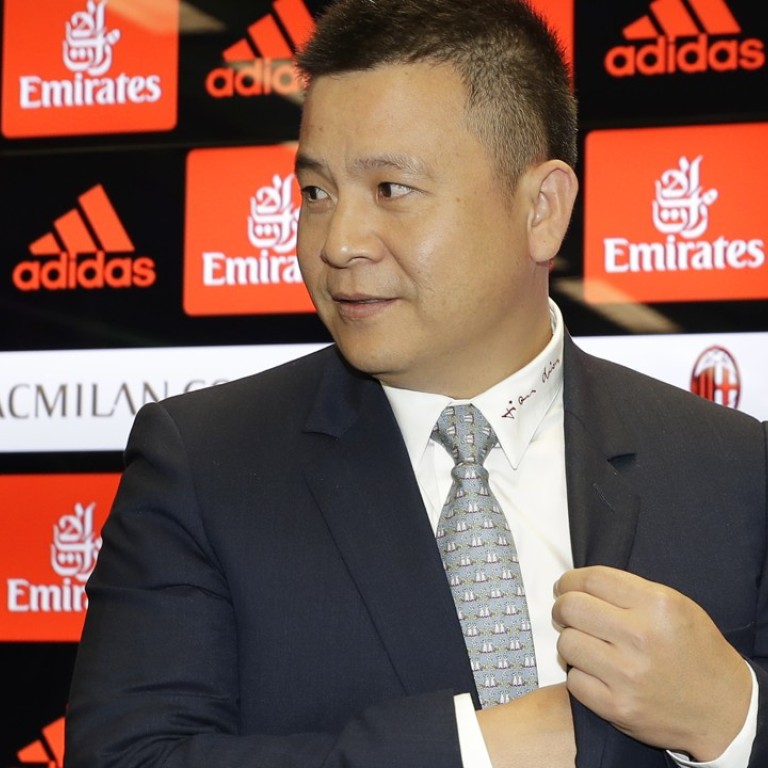
AC Milan Europa League ban overturned but Chinese ex-owner Li Yonghong’s soft power grab leaves lasting damage
Mysterious businessman Li Yonghong forced out by US hedge fund, but AC Milan face struggles despite Court for Arbitration of Sport overturning Europa League suspension
The Fifa World Cup has been called a success for the Chinese companies that sponsored the tournament but while everyone has been focusing on Russia, further West it has been a disastrous few weeks in terms of China’s soft power in football.
Premier League side Arsenal were the latest to fall foul of false hope and broken promises from the Far East.
A truly bewildering tale came out of Shanghai that casts serious doubt over the London club’s partnership with electric vehicle giant BYD Auto.
Apparently, the deal was signed by a fraudster rather than a company employee and it only took three months for this to come to light. Clearly the global media coverage at the time didn’t make the BYD press office.
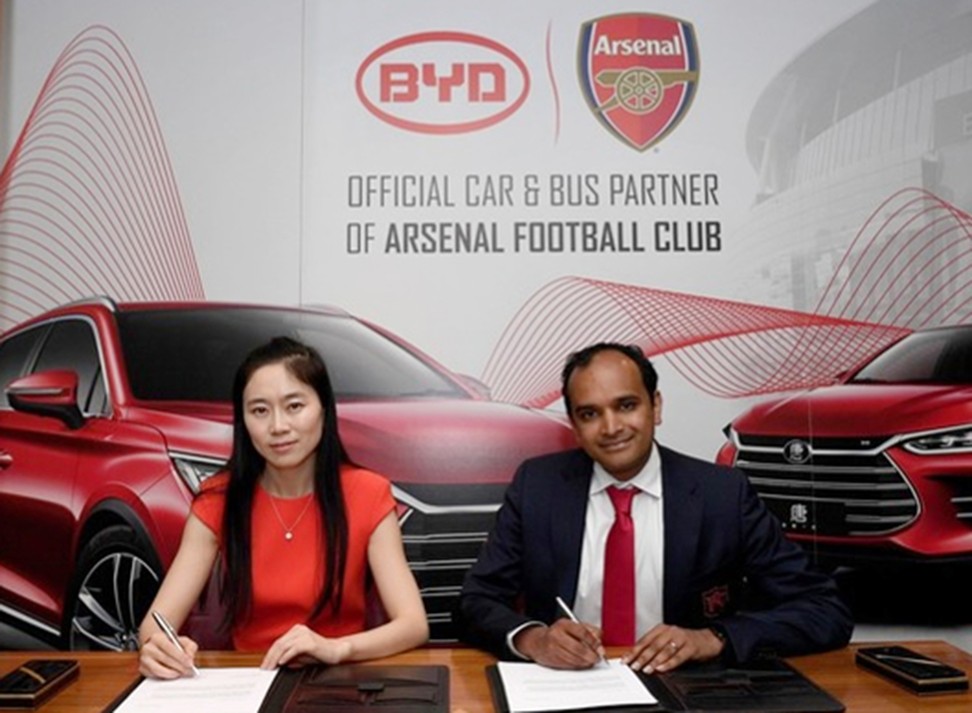
Some are speculating the company has got cold feet and the “fraud” is a convenient way to renege on a deal that might not look like great value for money but whatever the truth – or whatever version of the truth we’re given later – Arsenal have been made to look as hapless in the boardroom as they are on the pitch.
It could be worse, though. AC Milan, who are so bad that Arsenal beat them 5-1 over two legs in last season’s Europa League, know all about that.
The Serie A side found out on Thursday that the Court of Arbitration for Sport (CAS) in Switzerland had overturned Uefa’s decision to ban the club from European competition next season.
Uefa acted based on the club’s Financial Fair Play failures and their concerns over the elaborate business plan sketched out by Li Yonghong, the mysterious Chinese businessman who is now the former owner of the club.
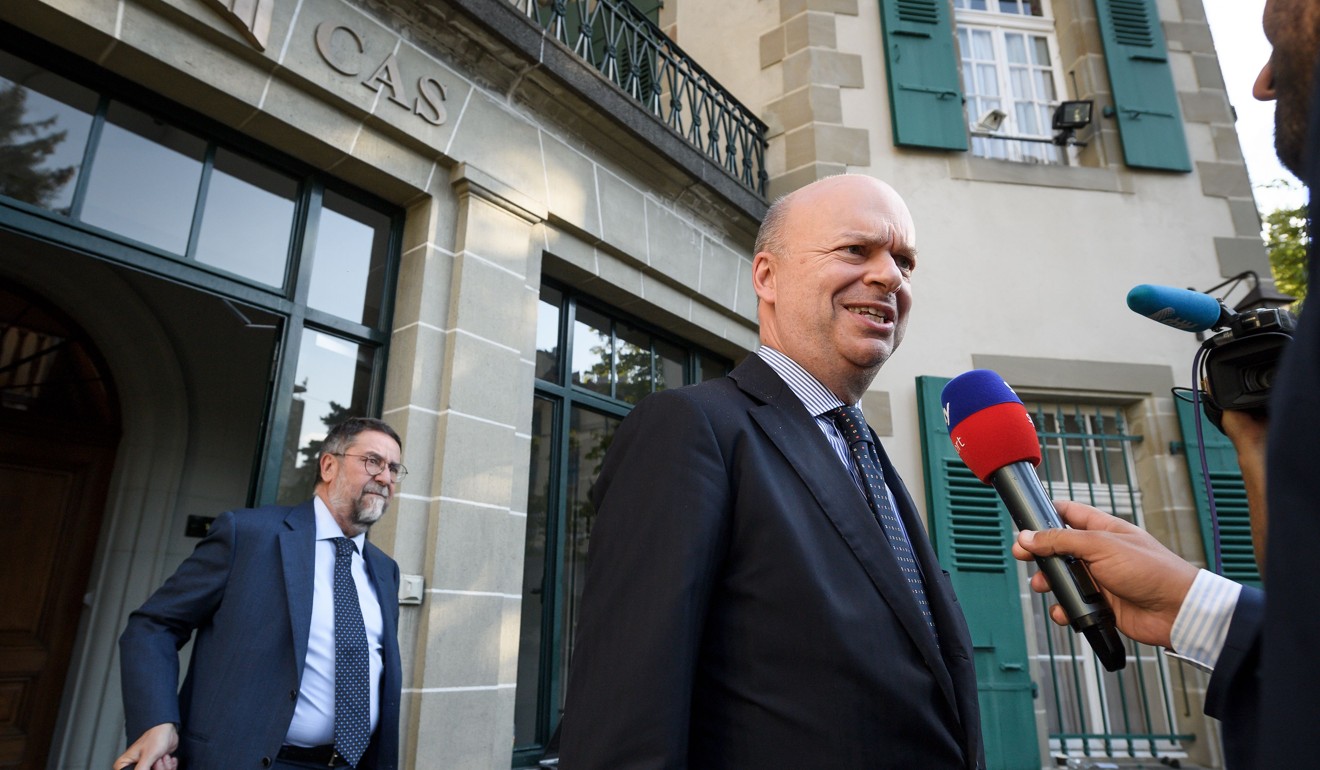
Last week he was forced out by US hedge fund Elliot Management, the same group he used to borrow the money he needed to get his deal with former owner Silvio Berlusconi over the line.
Little was known of Li when he emerged as a candidate to take over the Serie A giant, and his entire rein was punctuated by rumour and counter-rumour regarding his own financial security and ability to fund the club.
At one point it was widely reported that he was bankrupt, which he responded to with a video message for Milan fans.
As it was, Li could not find the €32 million (US$37.5 million) he needed to make the debt payment by the mid-July deadline – let alone the €300 million he needed to pay back Elliot Management in full by October – and the terms of their high-interest deal meant that the US side took ownership by repossessing the Luxembourg-registered holding company Li used to take over the club.
Li has not been heard from since, skulking back into the shadows to count the millions he has lost.
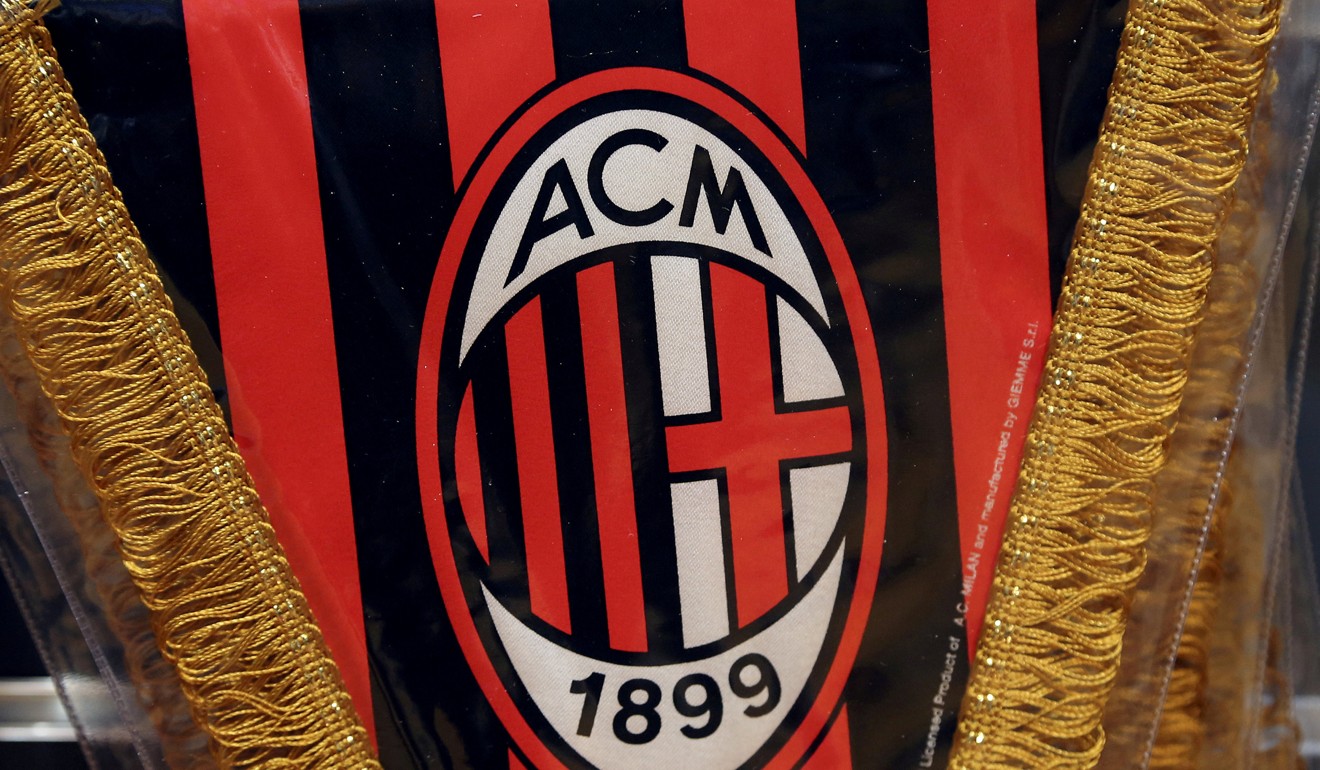
Li’s grasp on the club lasted a little over year before it fell into the talons of the US vulture capitalists but in that time he managed to pack in three managers and €200 million on players that have disappointed.
The Rossoneri finished sixth to ensure Europa League football would be played at the San Siro this season (before Uefa made all that ultimately fruitless fuss) .
On the plus side there at least looks to be some stability in store for Milan after Elliot promised investment on players and dismissed reports that they would immediately sell the club but the return of the glory days of the seven time champions of Europe seem some distance away and the period of Chinese ownership has set them back.
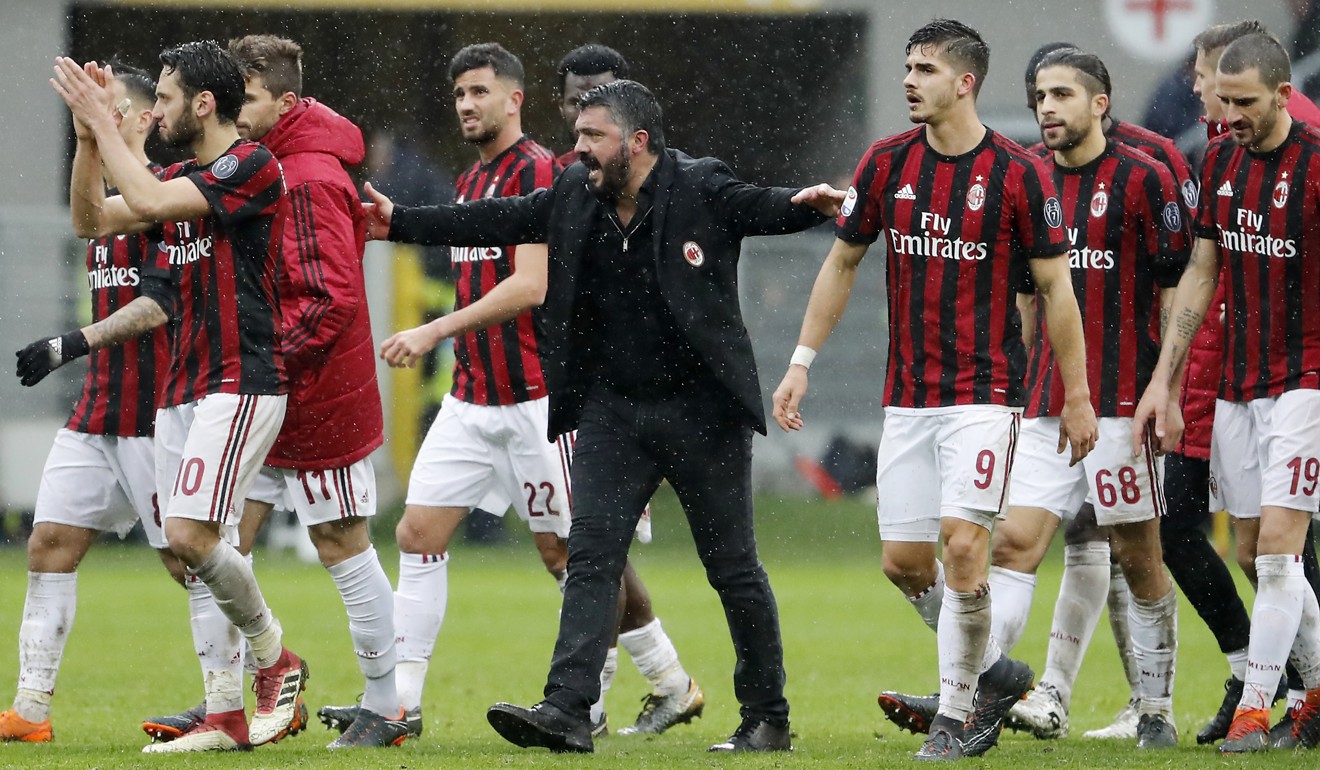
While Li has been forced out, another Chinese businessman is hanging on by his fingernails at another sleeping giant. Tony Xia’s struggles at Aston Villa took another turn this week as the club faced its monthly tax bill with payment due on Friday.
The Birmingham club have not yet sold star player Jack Grealish or James Chester but the acting CEO admitted they would have to “player trade” to meet FFP in his open letter to fans earlier this month, while cash controls in China means he may need to find outside investors to fund the club.
He was in London last weekend for meetings, which included the discussion of possible investment options but it’s an invidious situation.
Xia can either water down his ownership, no doubt losing face, or he can sell the players that represent the best chance of getting Villa back to the Premier League. It’s lose-lose.
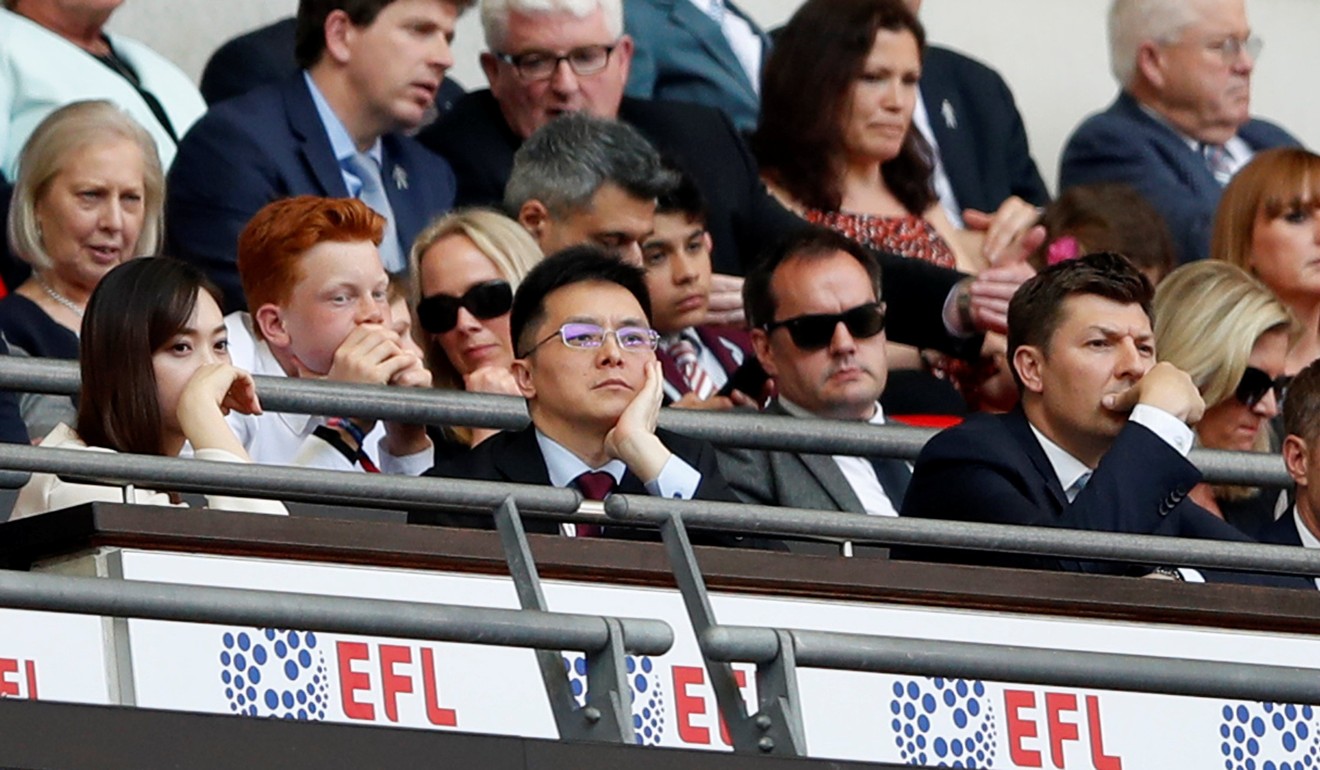
Any sale would only keep the wolf from the door, though, and the possibility of having to sell a devalued club at some point in the future looms large, at least in the eyes of many supporters.
Xia talked a good game when he arrived and got the fans onside but it has not gone to plan after they failed to reach the top flight in the playoffs and the roll of the dice has failed. Understandably Villa Twitter wants him out as the prospect of administration hovers in the background and on-pitch struggles seem inevitable for Steve Bruce’s side.
There are sure to be further developments and heartfelt reassurances but Villa fans are right to worry as are all of the European clubs who have got into bed with Chinese cash. When it comes to soft power, there are hard lessons yet to be learned.

